Meet Bakary-David: One Year Later
Bakary-David (Gambia) at the Embassy of Switzerland in Rome, Italy. 11 June 2018. Image courtesy of the International Commission on Missing Persons
by:
Pamela Kerpius
Published:
21 June 2018
Introduction
“You would make a good New Yorker,” I told Bakary-David as we dodged ambling pedestrians on a main street in Napoli that was designed to court delay. From the clogged pedestrian drag at the historic center as you near Napoli Centrale, the main railway station in the city, chaos builds upon a breathing foundation of it, in the end making New York seem actually rather square.
We were running on fumes, and inhaling them from the scooters blowing by in a cloud of exhaust. Bakary-David though, looked like a footballer on the field, anticipating obstacles two steps before they happened––a stroller, a pothole, a cafe table squeezing out the sidewalk space. Six months into his residency in Napoli and he had already learned the patterns of its movement, already understood its cadence, and I was glad for it, because in this particular moment it meant my train to Rome wouldn’t depart without me.
Minutes left to spare, we blew through Piazza Garibaldi and through a red light as he waved to the traffic to yield.
Bakary-David, with his friend Jamilu (20, Gambia) bringing up the rear, got me there, sweating on this cool November evening in 2017, but set. I found my track number on the board. We hugged and high fived and hugged again. Today was awesome, we agreed, and I dragged the rubber heels of my Timbs the rest of the way to my seat on the train.
It was the first time I’d seen Bakary-David since he arrived in Lampedusa in April 2017, and I had no idea how to expect his demeanor in life post-Lampedusa, or more rightly, post-Libya. He was struck in the head badly by an AK-47 when he was under capture there and had terrible trouble speaking without stuttering over the details when we met on the island. Then, he seemed somewhere between a state of shock and in a shroud of clouds that would not part to let his personality shine through.
I didn’t know anything about him. Only what had happened.
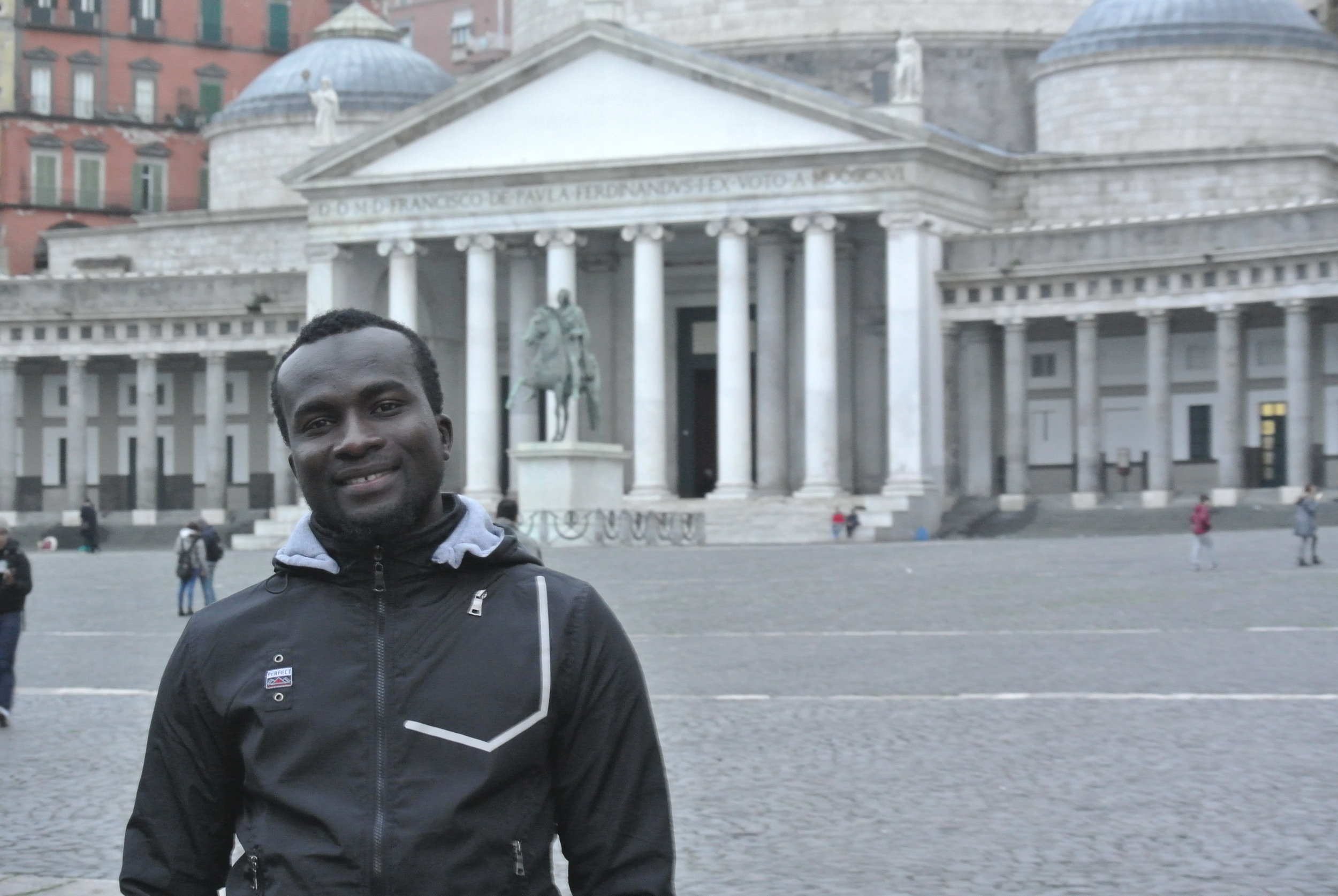
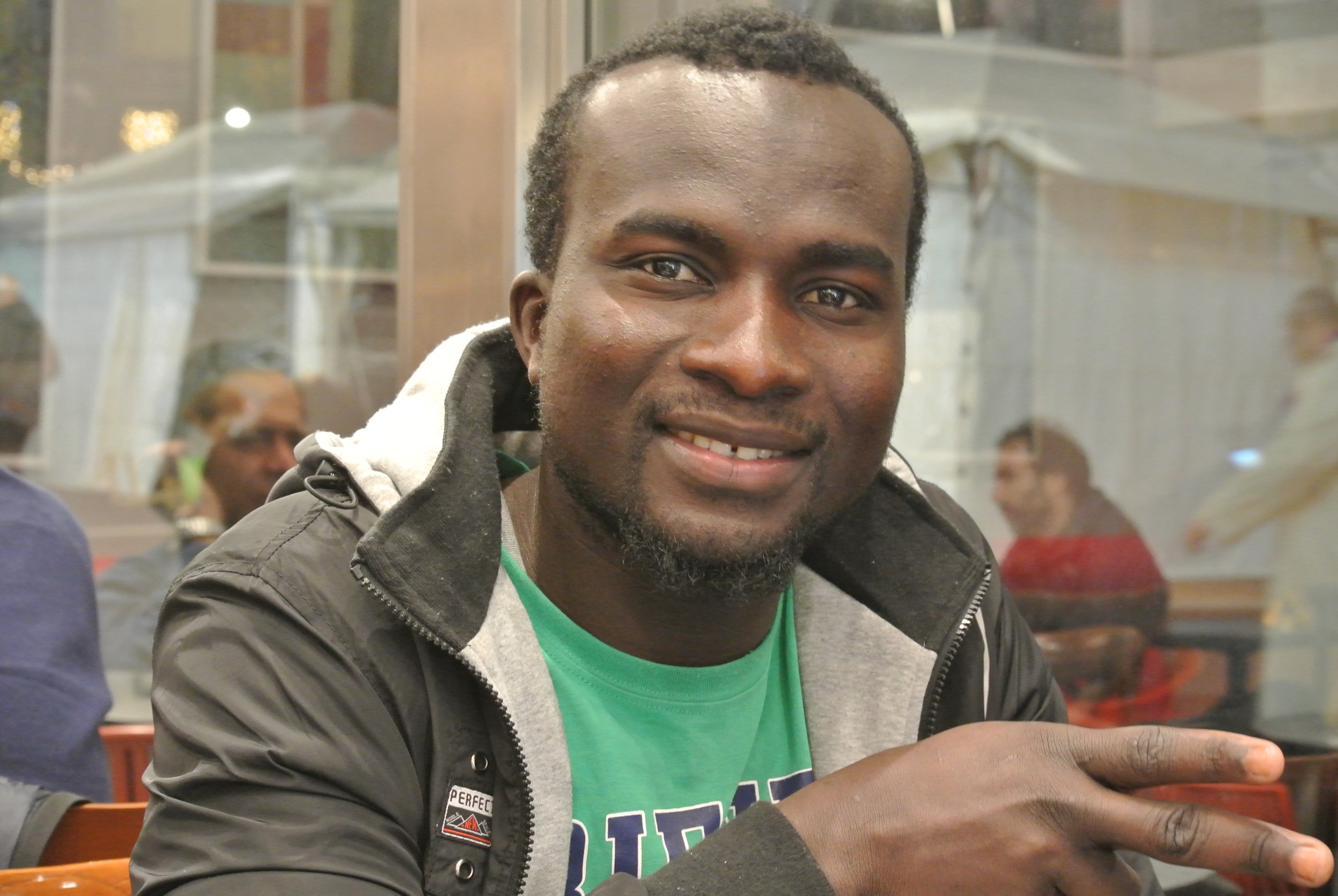
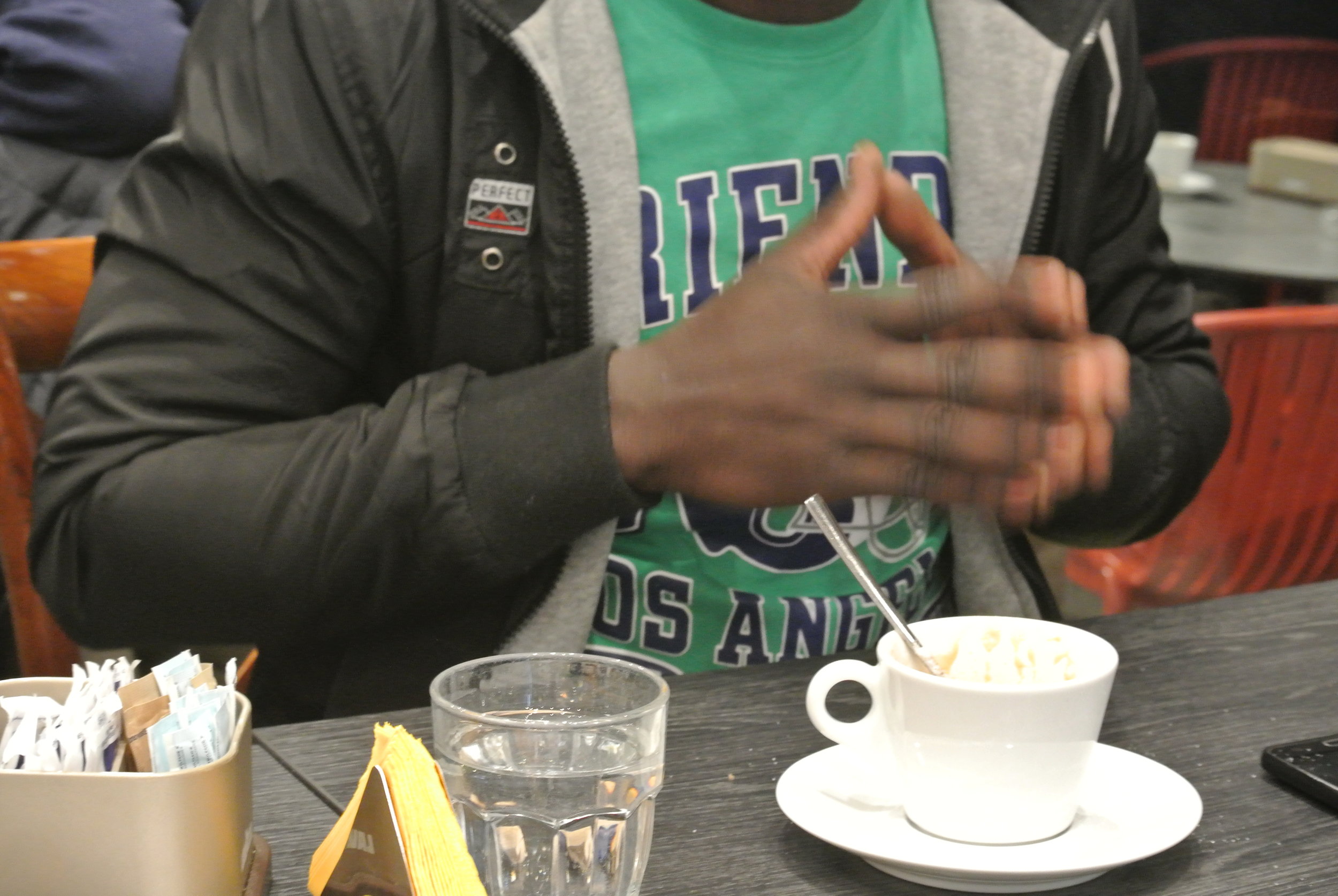
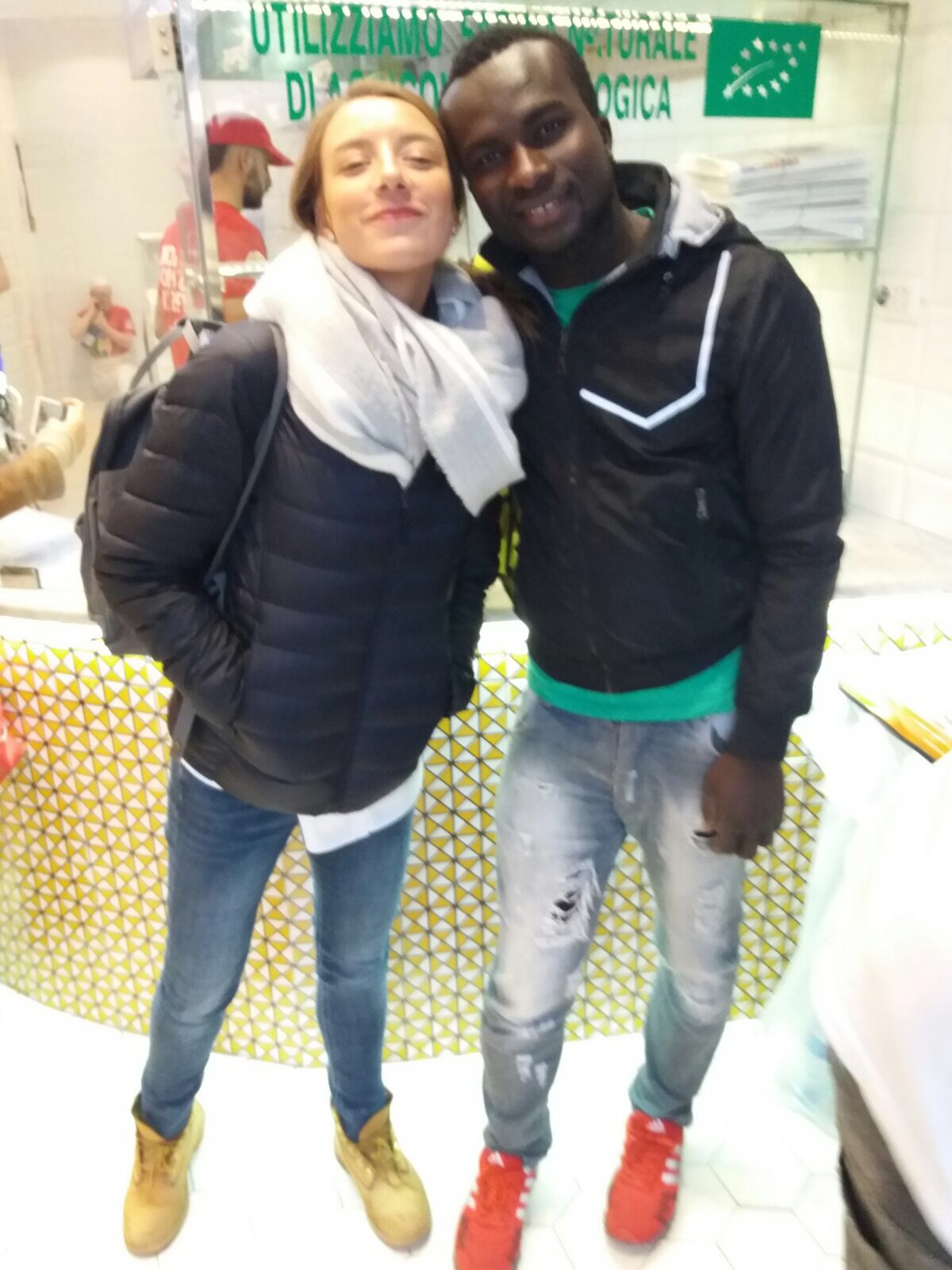
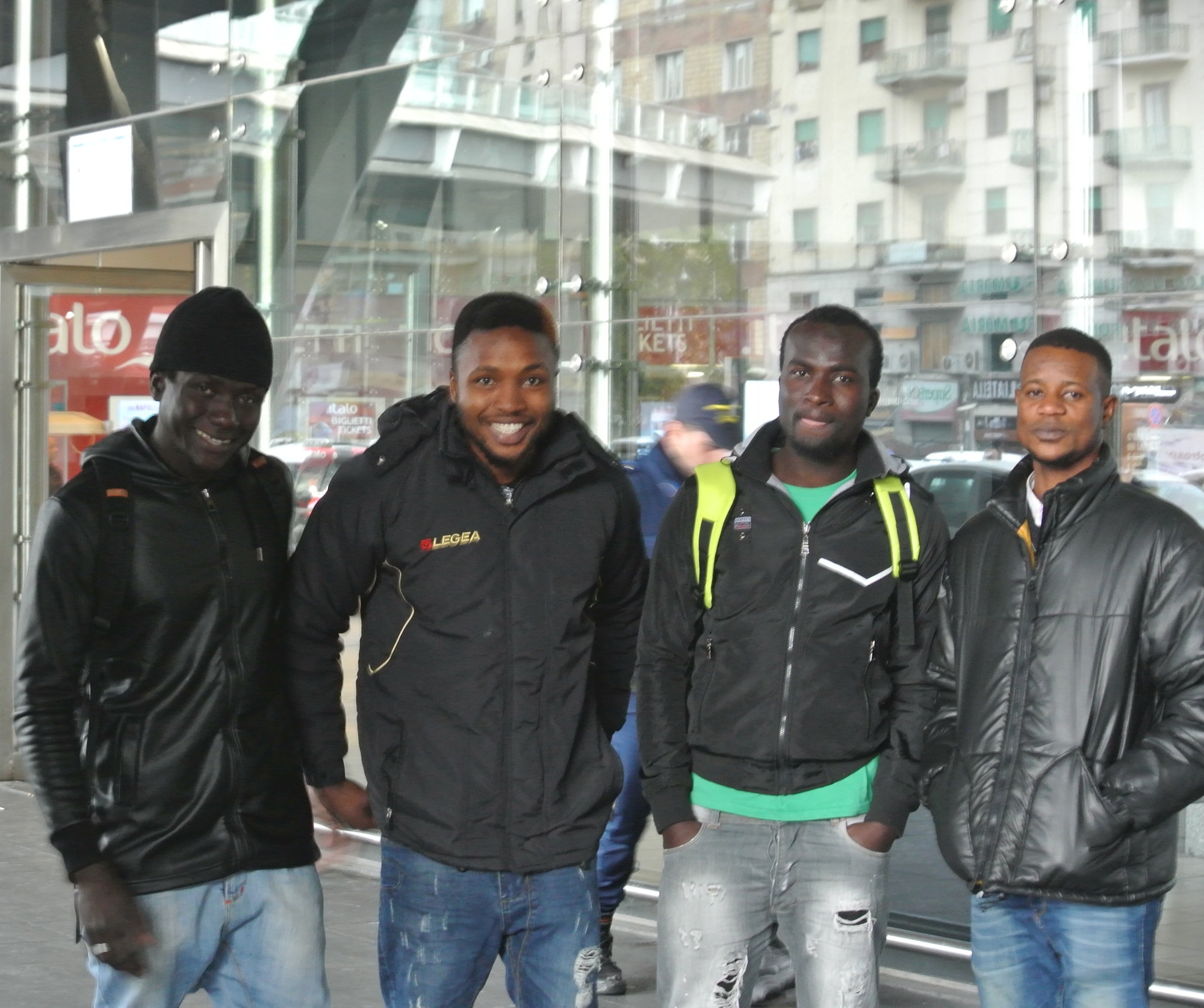
He says he is lucky. At his housing in a small town outside Napoli he has been given everything that is legally required, which is no small feat for a person in the migrant community in Italy. He is comfortable at his housing, says the owners of the building are friendly to him, and he’s even allowed to cook his own African meals from the groceries provided. He is receiving Italian language education from volunteer teachers (and a bit more informally, has learned how to swear in Neapolitan dialect from neighbors.) He uses Italian gestures like it’s second nature. In November 2017, his documentation still outstanding from the state, he was in spite of its absence already becoming Italian.
He receives his full 75 euros monthly from the housing management, and that enables him to sometimes buy clothes, and to keep a cell phone to communicate with his family, and with me. When I arrive at train stations or central plazas or sites to visit migrants after Lampedusa, it is never clear what they will look like, how we’ll find each other, or if they’ll show up at all. It’s a leap of faith. And the only memory both of us have to go on is a picture or two from a single chat held months ago, and then, maybe that was only for a few minutes. I can search into the eyes of a lot of faces at Centrale, where many in the migrant community congregate, before I find that flicker of recognition.
Bakary-David came bounding over like his movement was drawn by a cartoonist when he saw me. In Lampedusa, he was lethargic and gray. There was color now on his skin and in his eyes. He’s twenty years old, and this time was revived with the energy to match that. We cut across the city together, taking in sites he had not seen before, and taking our first taste of fried pizza from the famed Sorbillo. We sputtered around Piazza del Plebiscito eating the greasy slice and snapping pictures in the fading light.
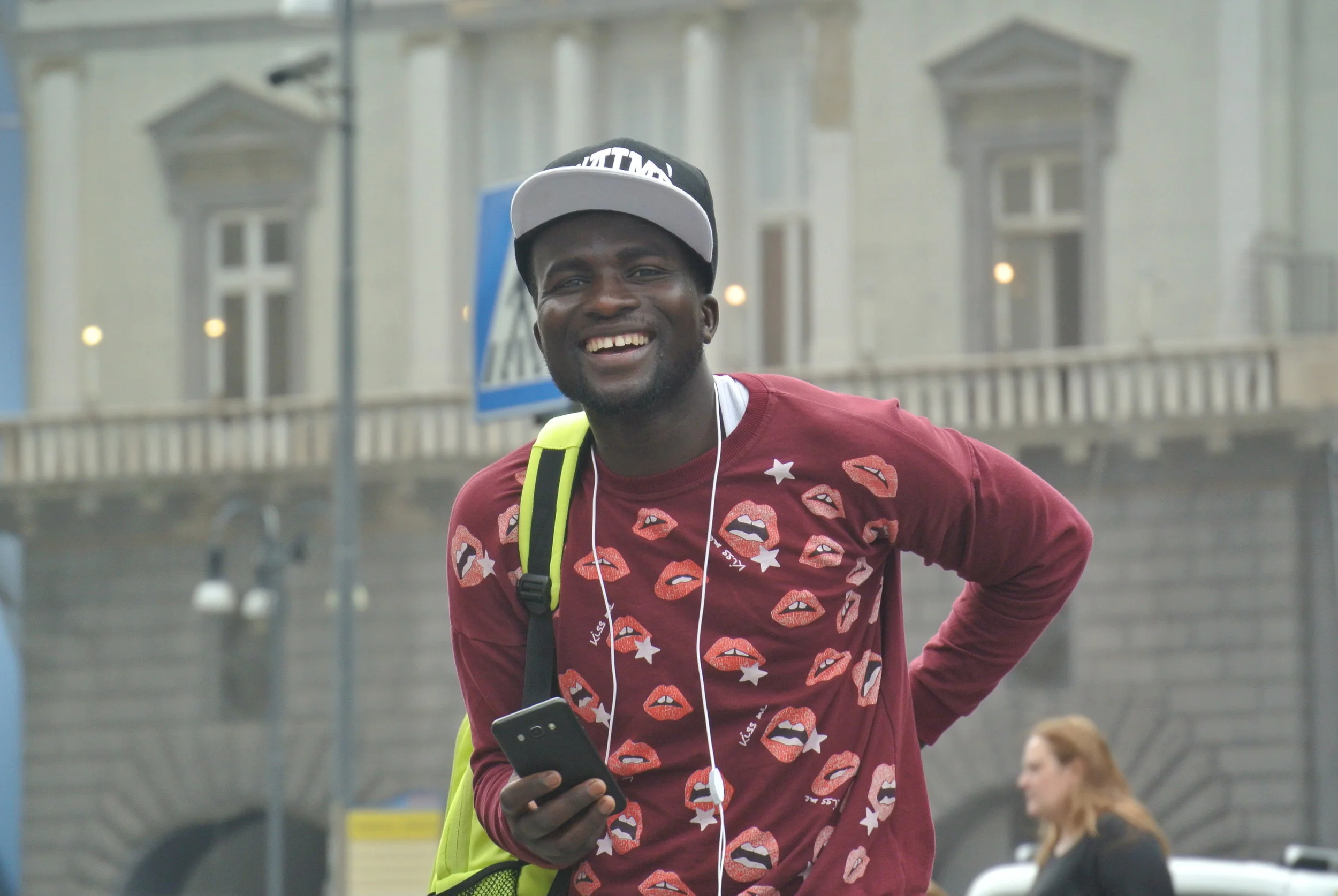
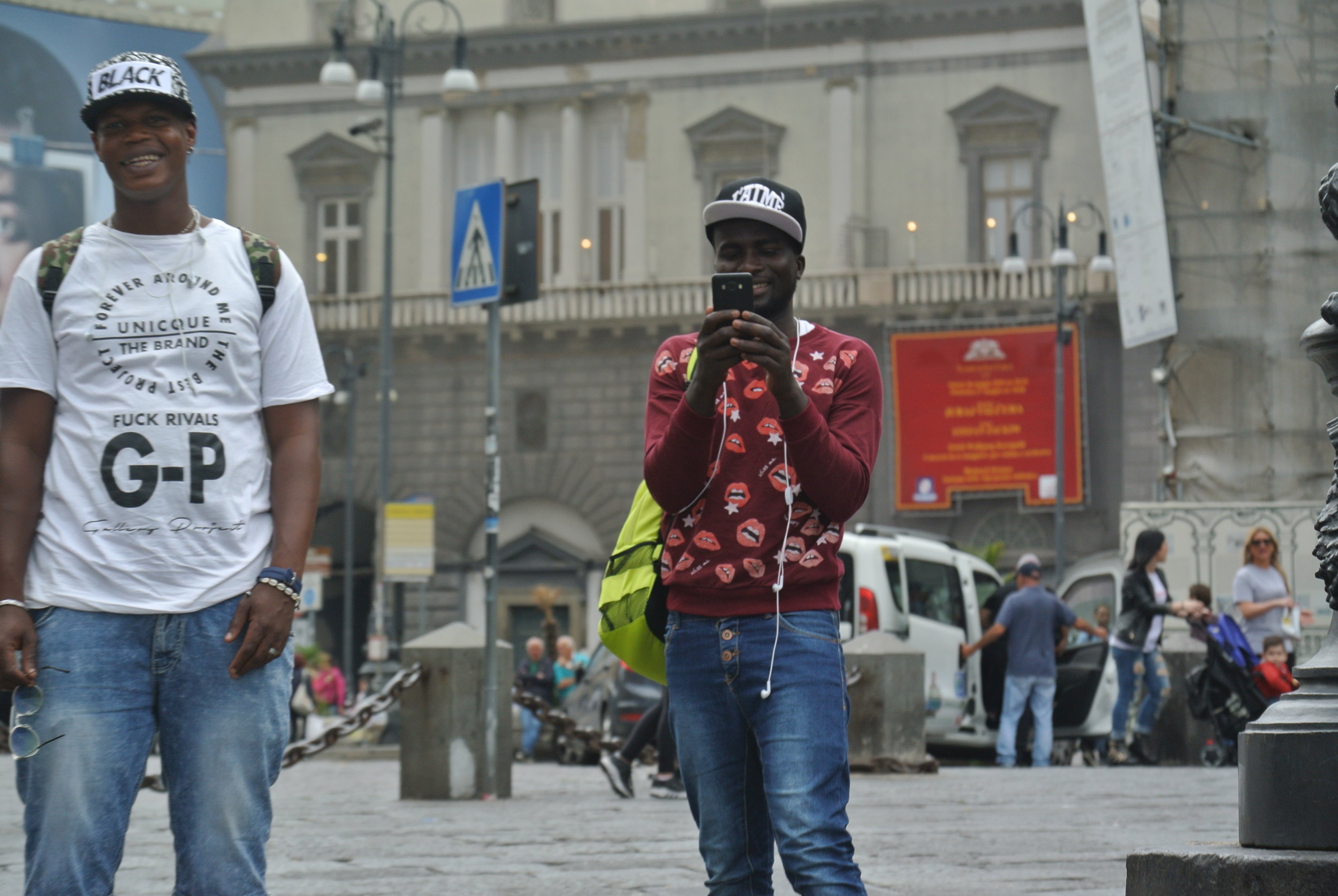
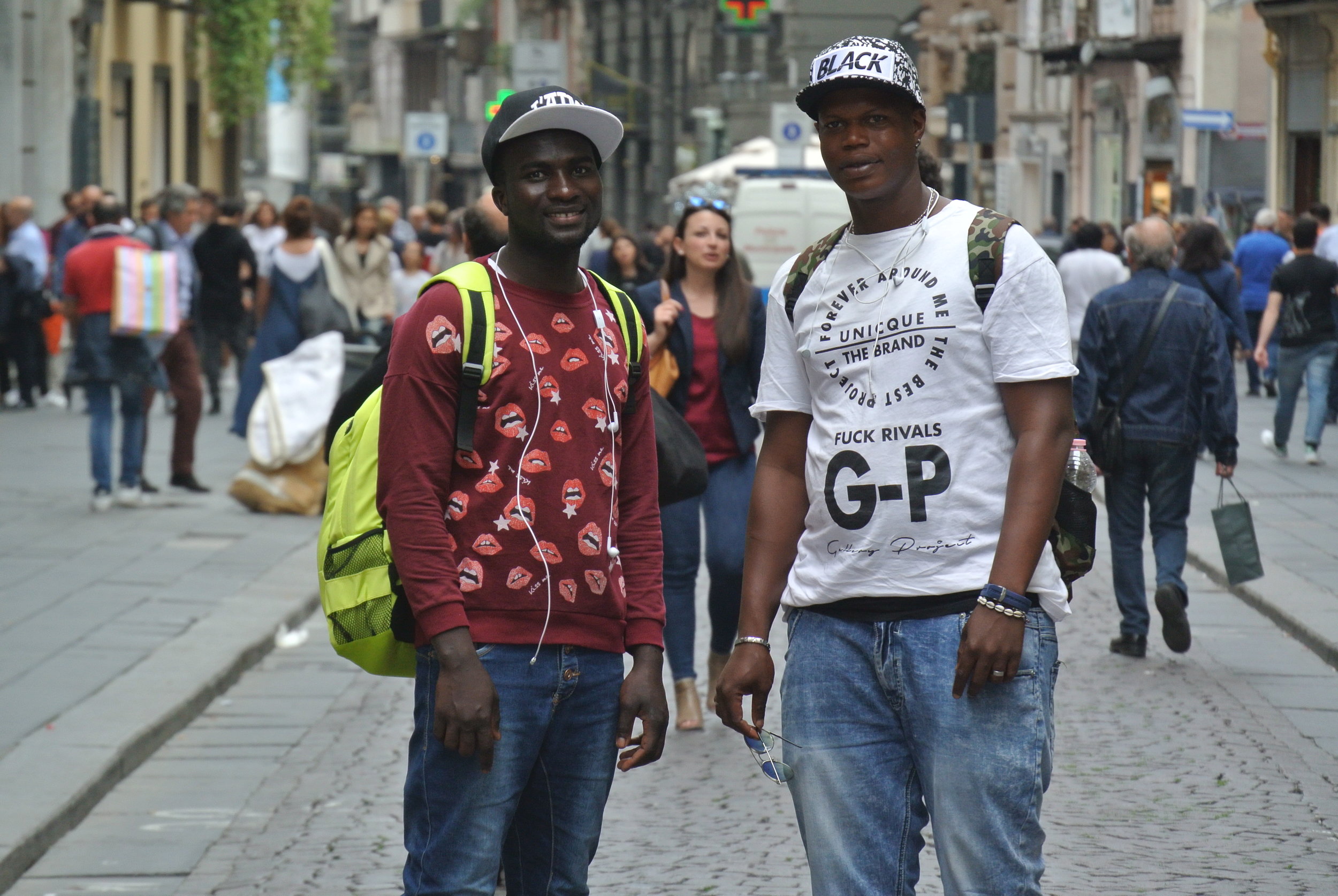
We met again last month, in May 2018, with our common friend, Yoro (23, Gambia) who he knew from Lampedusa but hadn’t seen since.
This happens often. I meet one migrant in isolation, but upon describing the others I plan to meet later they light up, “I know this boy!” It’s especially the case with Gambians, whose confined cities in an extraordinarily small national territory make it seem like it is more of a municipality than a country.
Bakary-David and Yoro arrived in Italy the same weekend, Easter weekend 2017, when there were more than 10,000 arrivals from Libya, over a thousand of whom were packed into the Lampedusa hotspot that’s built to host 300. Bakary-David and Yoro said they used to swim laps at Cala Guitgia together to get away from the crowds at the reception center for exercise. Now, they swapped stories of living and language learning. Bakary-David showed us his certificate of beginner fluency.
Not everything is bright, however. Bakary-David told of recent encounters he had with residents who whisked their kids away from him when they came near. The parents won’t speak to him. We shake our heads at each other, tacitly knowing this is for reasons of hatred or fear. One kid liked to play football with him, but his mother put a stop to it. So it is not uncommon for Bakary-David to find himself in isolation in the place that he calls his own neighborhood. He still has no commission date set that will determine his asylum status in Italy. He is only waiting, but continuing to study the language with his teachers in the interim.
Also, it remains impossible not to talk about what happened in Libya. The story needs to constantly be told and retold, like a physical therapy that breaks up scar tissue lest it immobilized you.
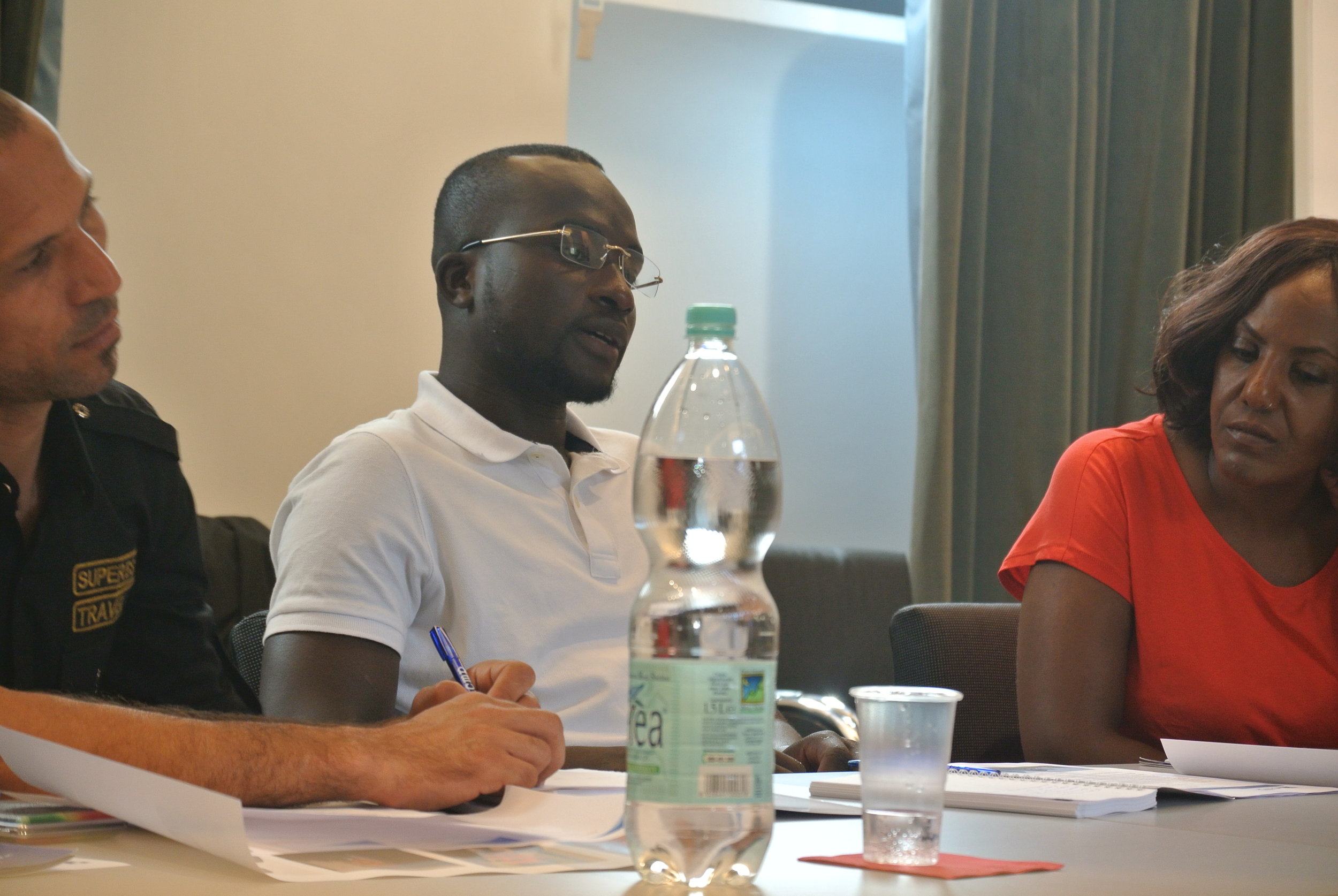
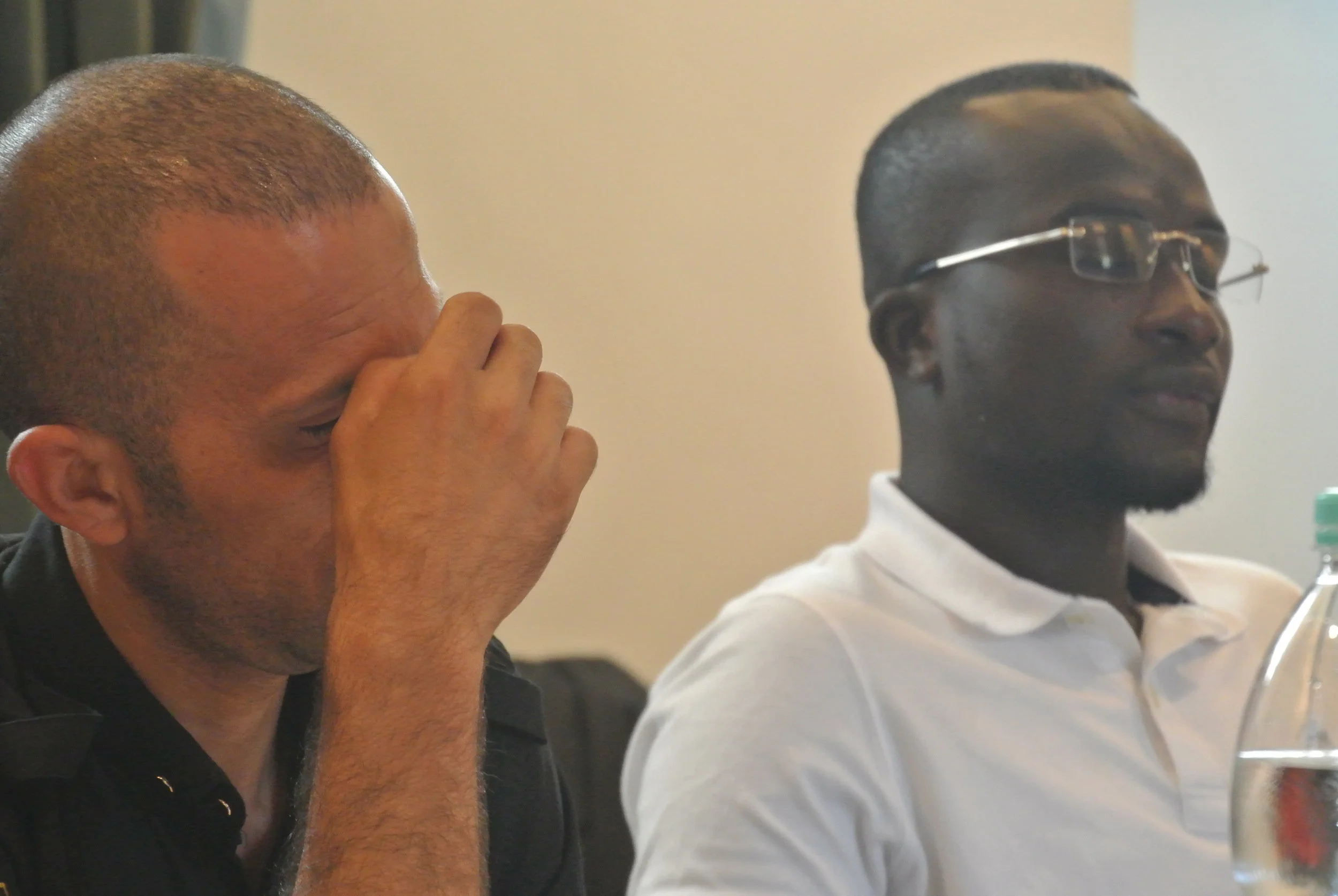
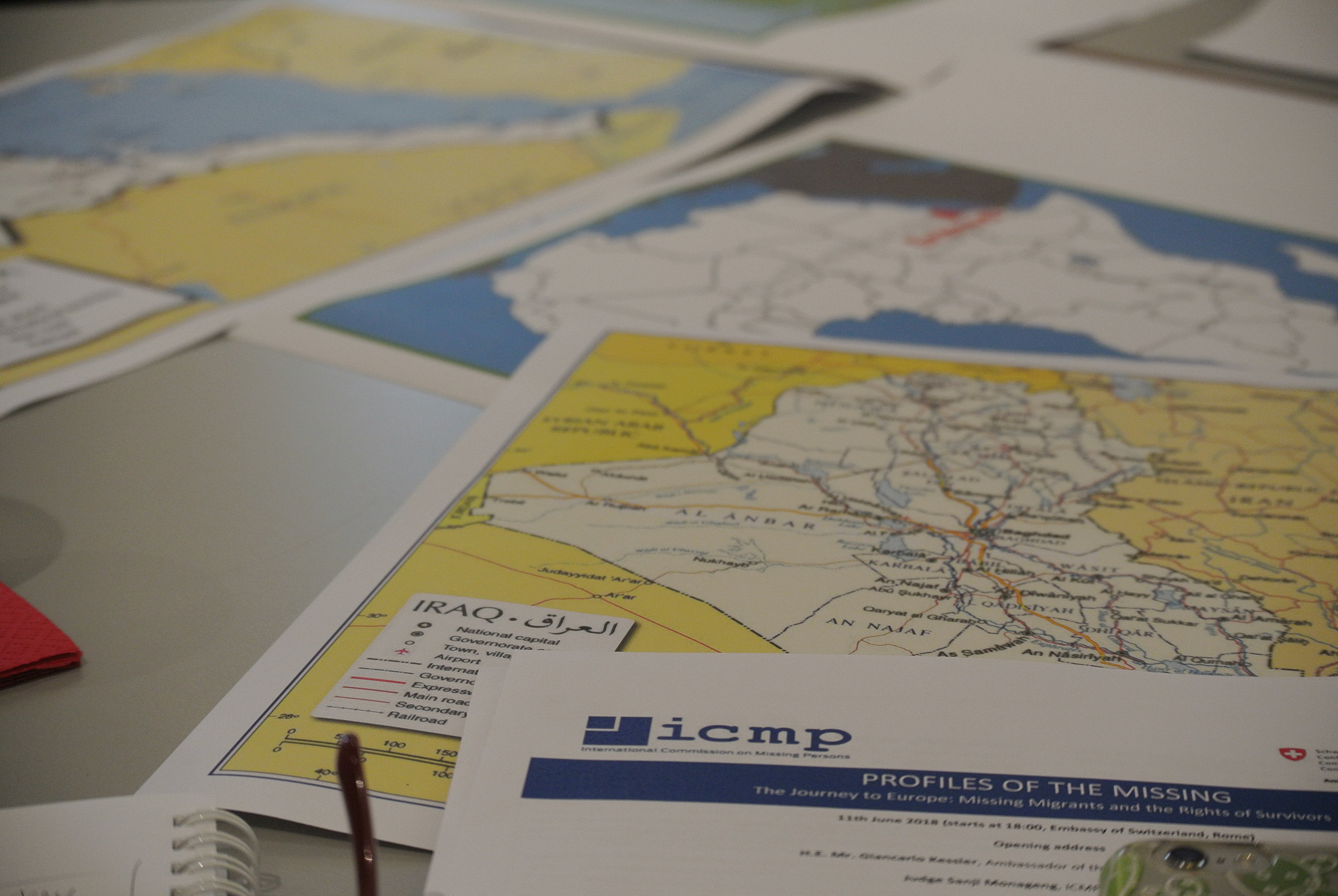
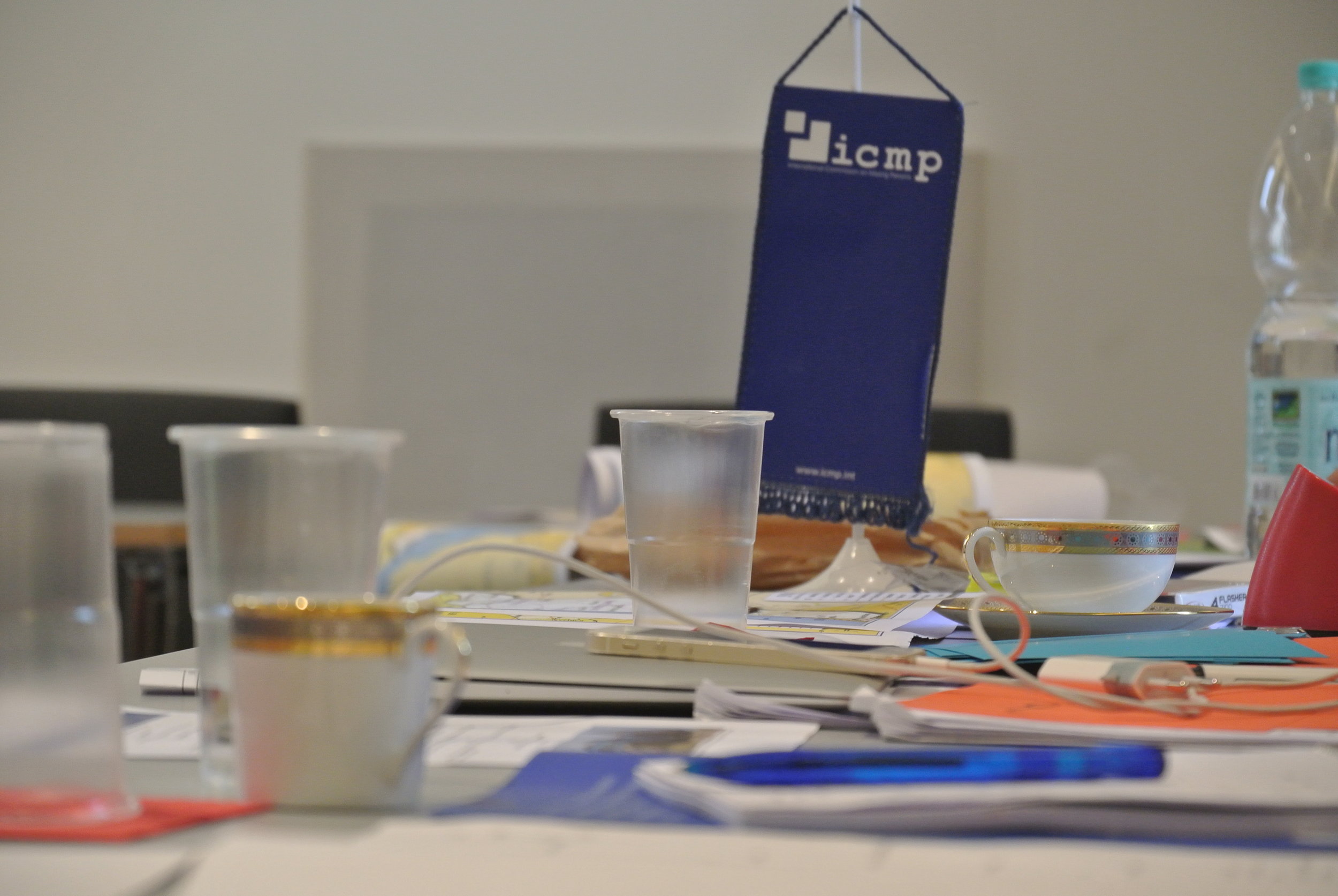
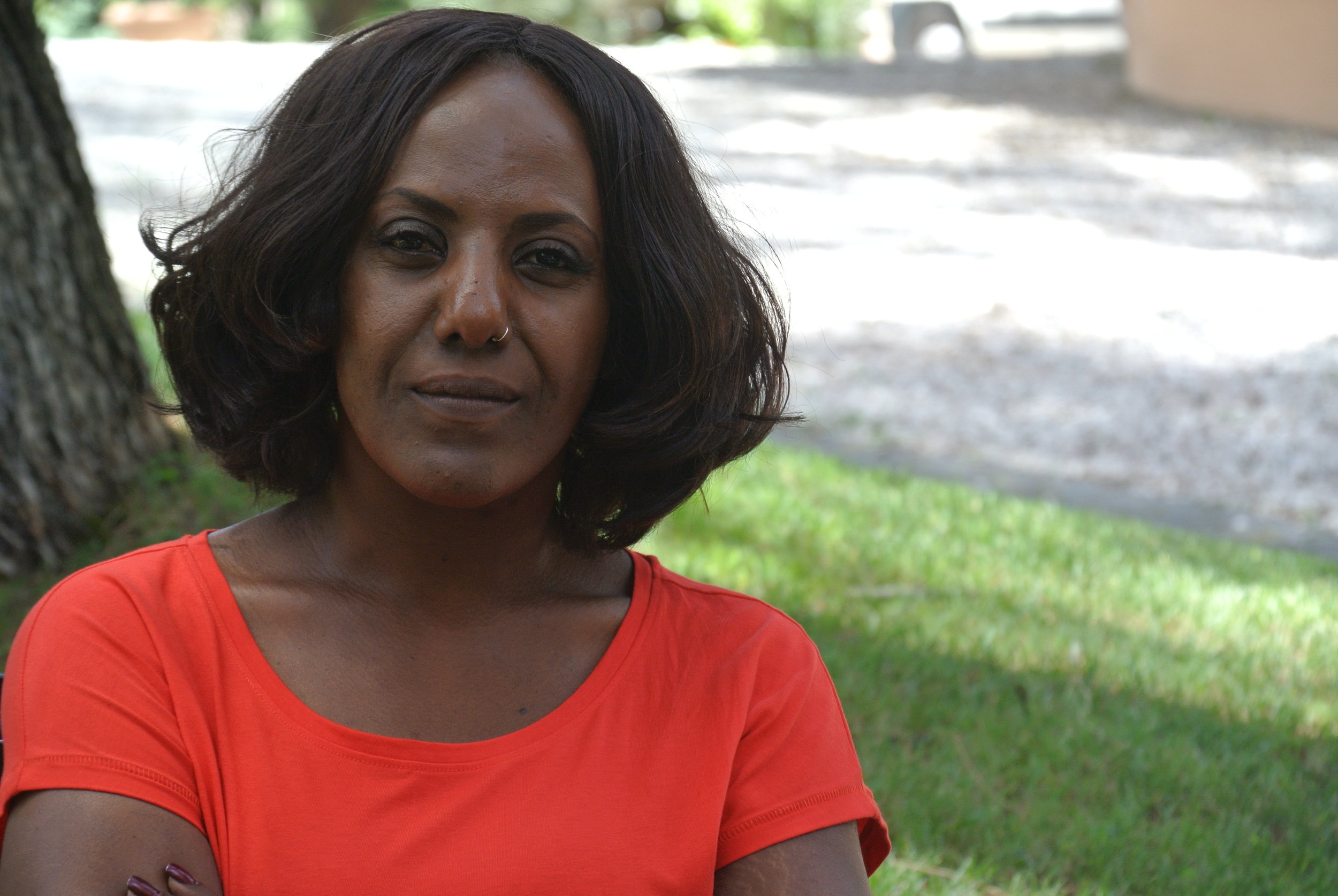
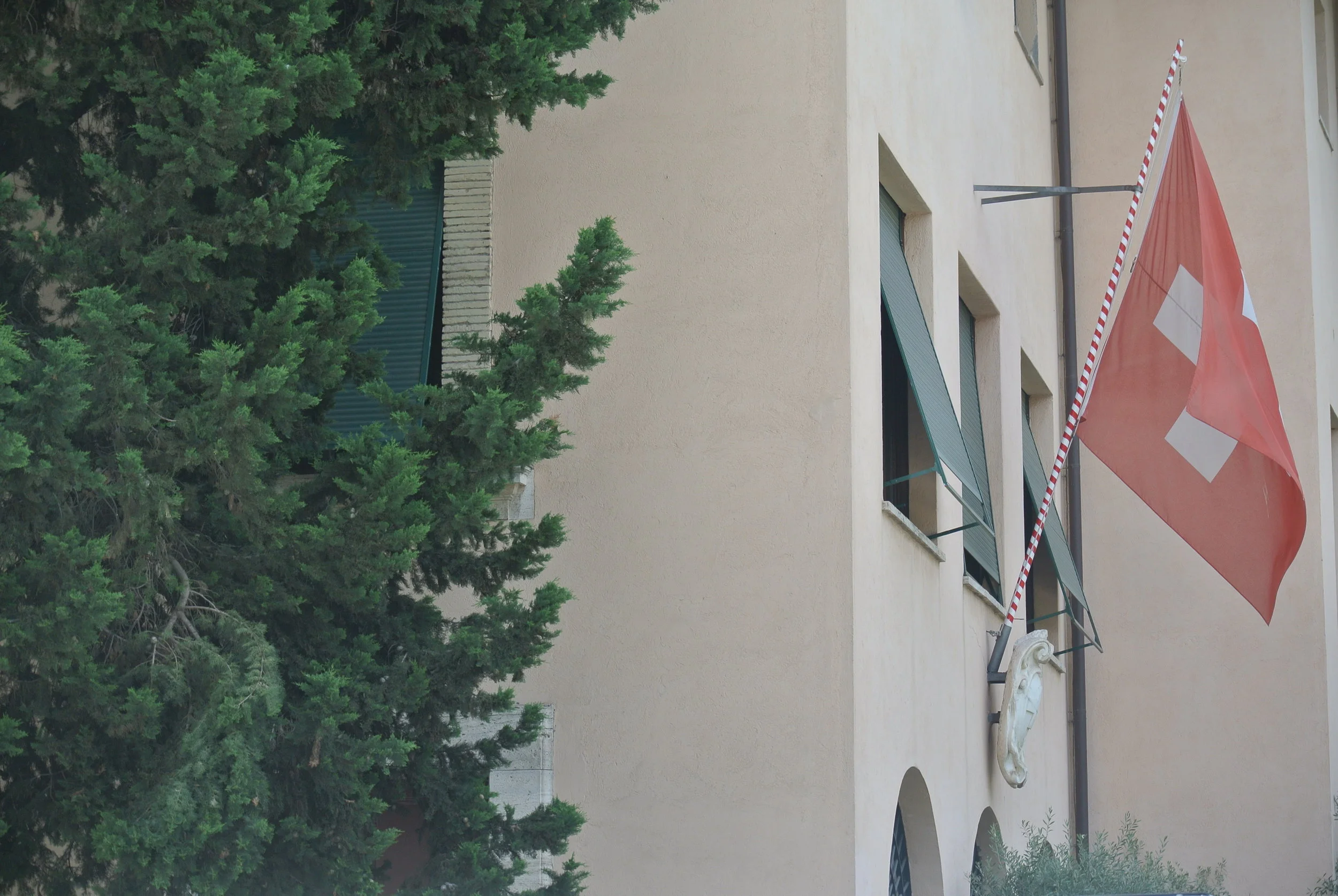
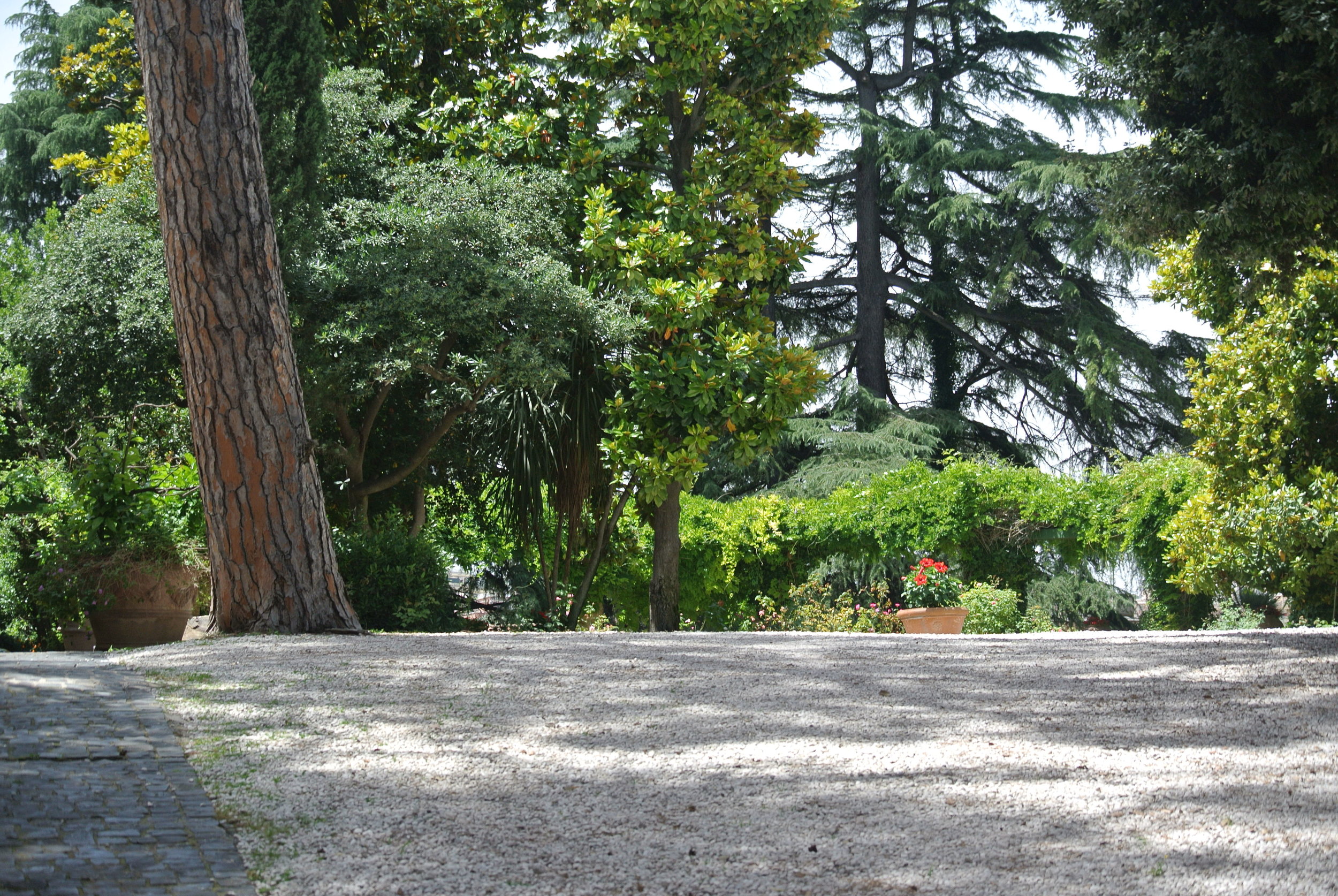
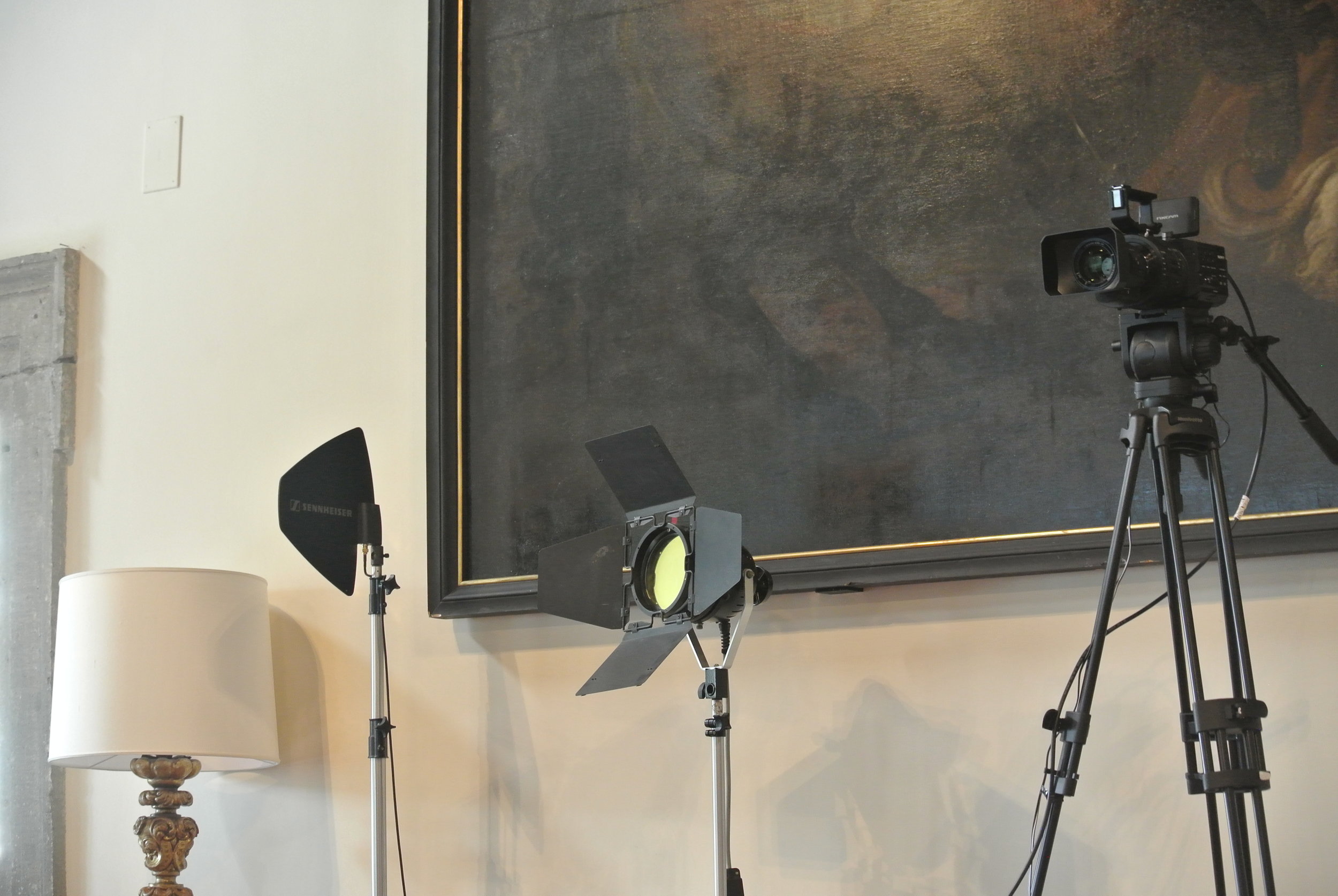
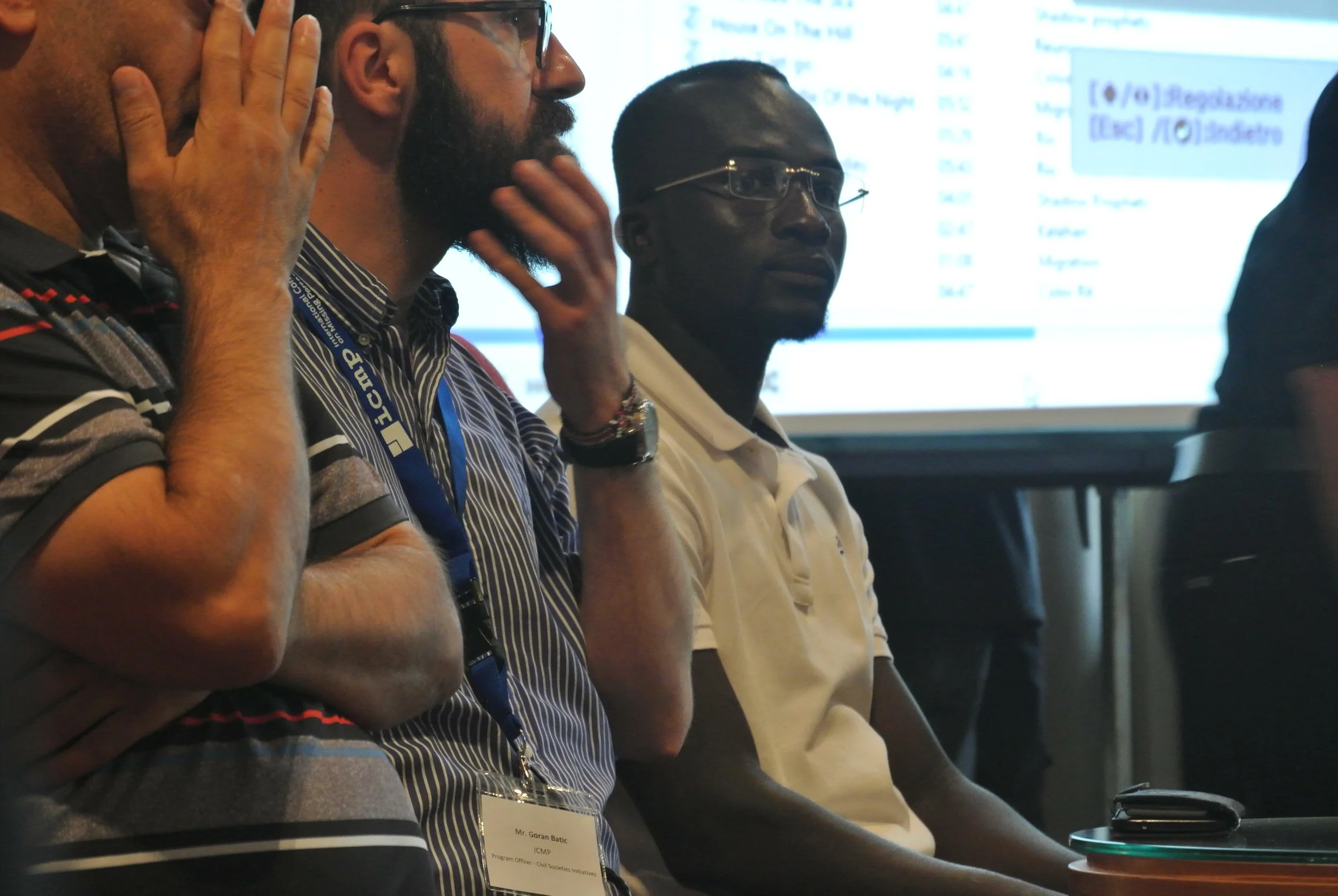
10 June 2018. We are at the office of the International Organization for Migration (IOM) in Rome.
The International Commission on Missing Persons (ICMP) invited MotM as a partner for bringing Bakary-David to speak at its conference on the experience of migrants living with the unknown whereabouts of family and friends.
He has a missing friend, Mustapha (24, Senegal), who he lost track of in Libya after he crossed the Mediterranean Sea last year. He’s contacted Mustapha’s family via Facebook and WhatsApp but “[he] is nowhere to be found,” said Bakary-David.
To prepare for the conference the next day, each migrant learns the format of the panel and the timeframe they have to tell their story. There’s tension in the room that comes in those early moments of everyone looking back at each other still as strangers. We would come to know each other intimately very quick.
Walid (Iraq), a refugee on the panel, watched his wife and children drown in the sea from Turkey to Greece nine years ago. The interpreter translating from Arabic told us as he finished talking:
“The hardest part is when you hear your family members screaming and there is nothing you can do for them. Your children cry out, Father! Father! and there is nothing you can do.”
Silence in the room. A collective paralysis. Walid grips his brow to stop crying. A mental health councilor from the IOM is on hand for emotional support, but it is Bakary-David who slides his backpack discreetly off the table behind him, slowly unzips it, and pulls out a packet of tissues, the fazzoletti that no Italian seems to leave home without. He gives one to Walid to dry his eyes.
Bakary-David tells his story, how he got here. There’s clarification from the one documented on the MotM site, and I realize the importance of repetition. The more we talk the more we understand. You cannot tell the whole story in one meeting. Lampedusa allows the raw nerve of the story to be exposed, but it happens with too much urgency to be holistic. There is no final word in Lampedusa, because the trauma lives on after it.
“It was so very sad,” Bakary-David lamented as he recounted having been forced to bury five bodies in the desert alone after they’d been starved and beaten to death in captivity. After he escaped prison it is revealed he attempted crossing the sea not twice, as it is told in our original interview, but seven times, at each turn being brought back to detention where more than once he was sold as a slave.
“I cost 250 dinars,” he said. He knows the price of his body because he listened at the door as the Libyan men haggled over it.
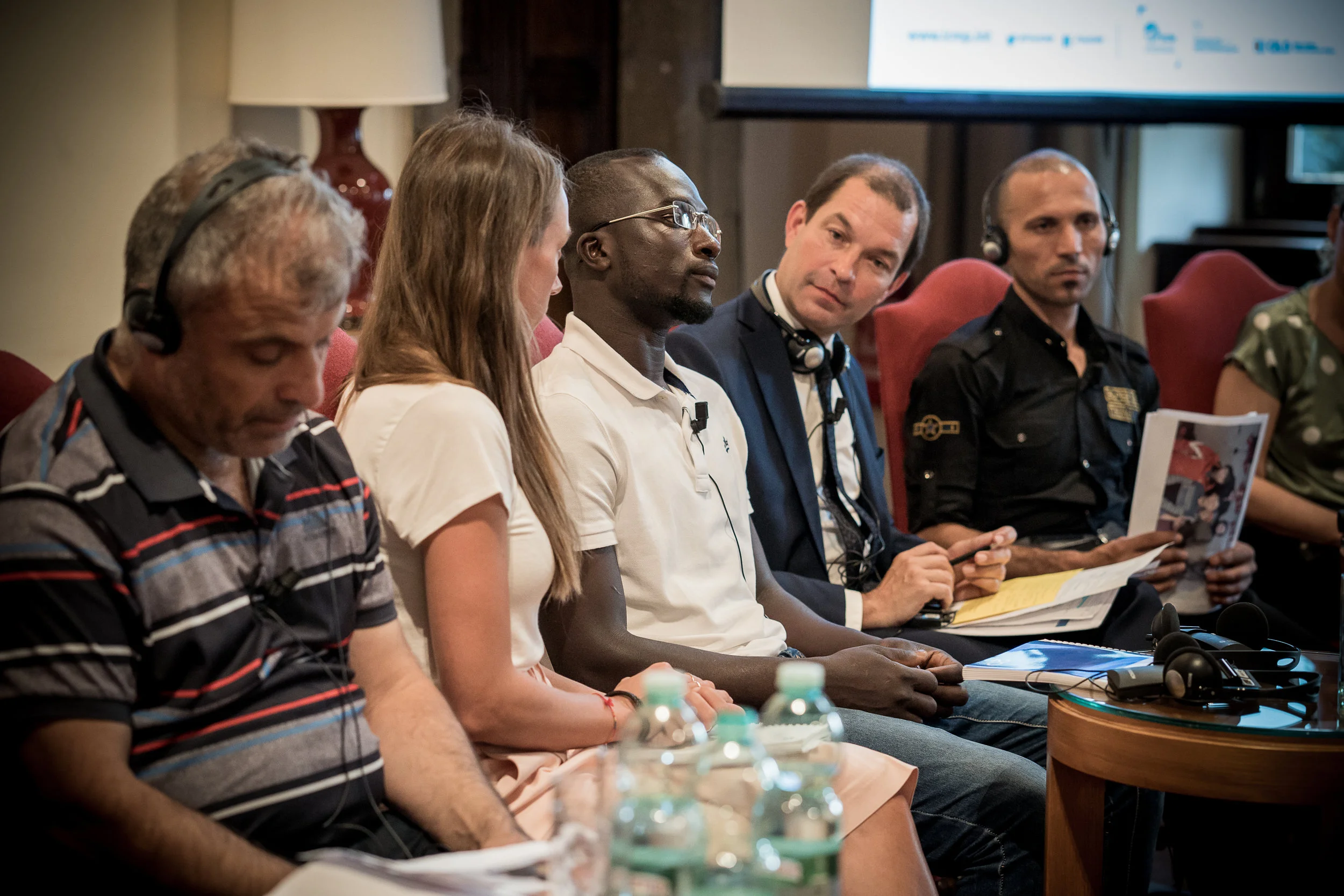
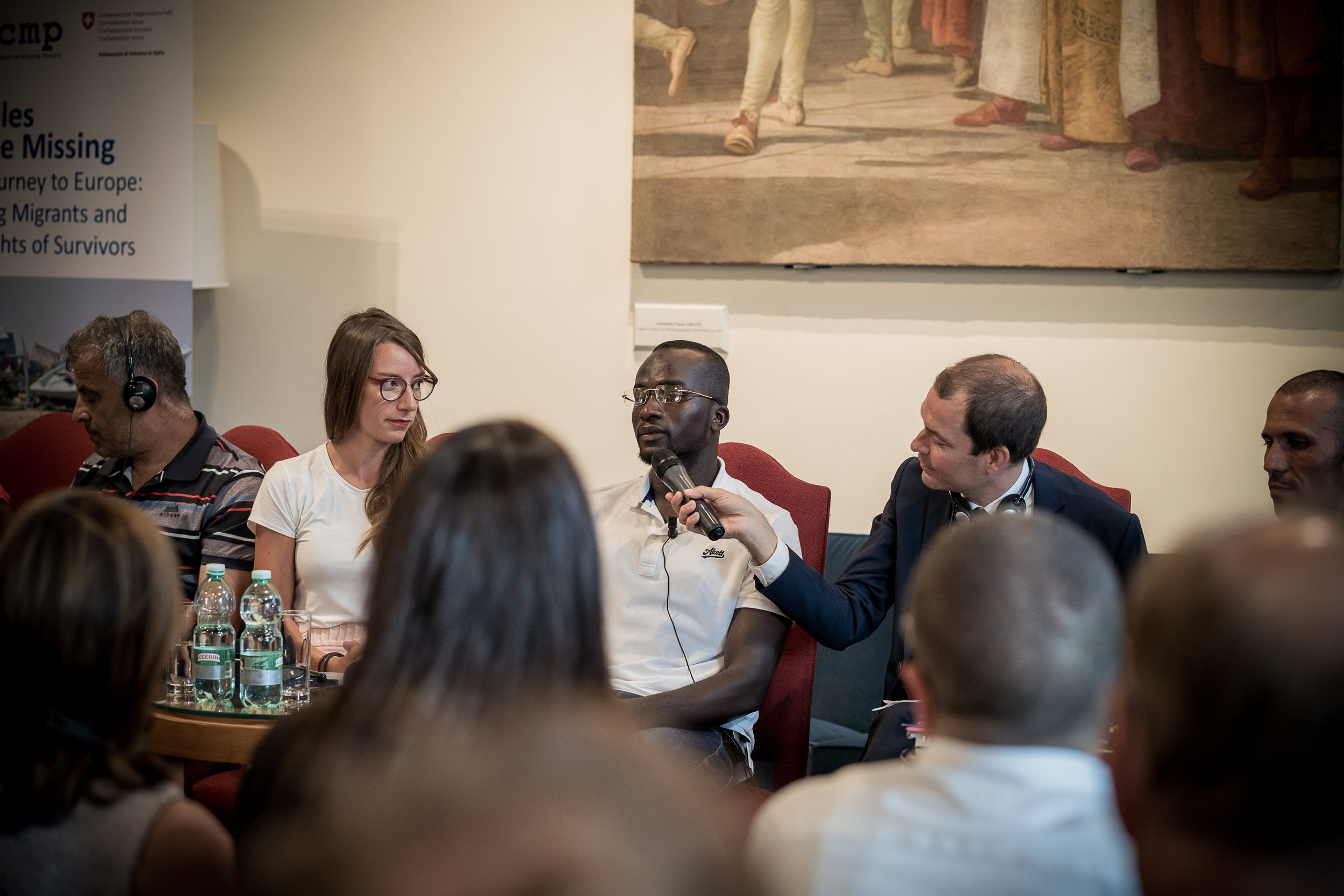
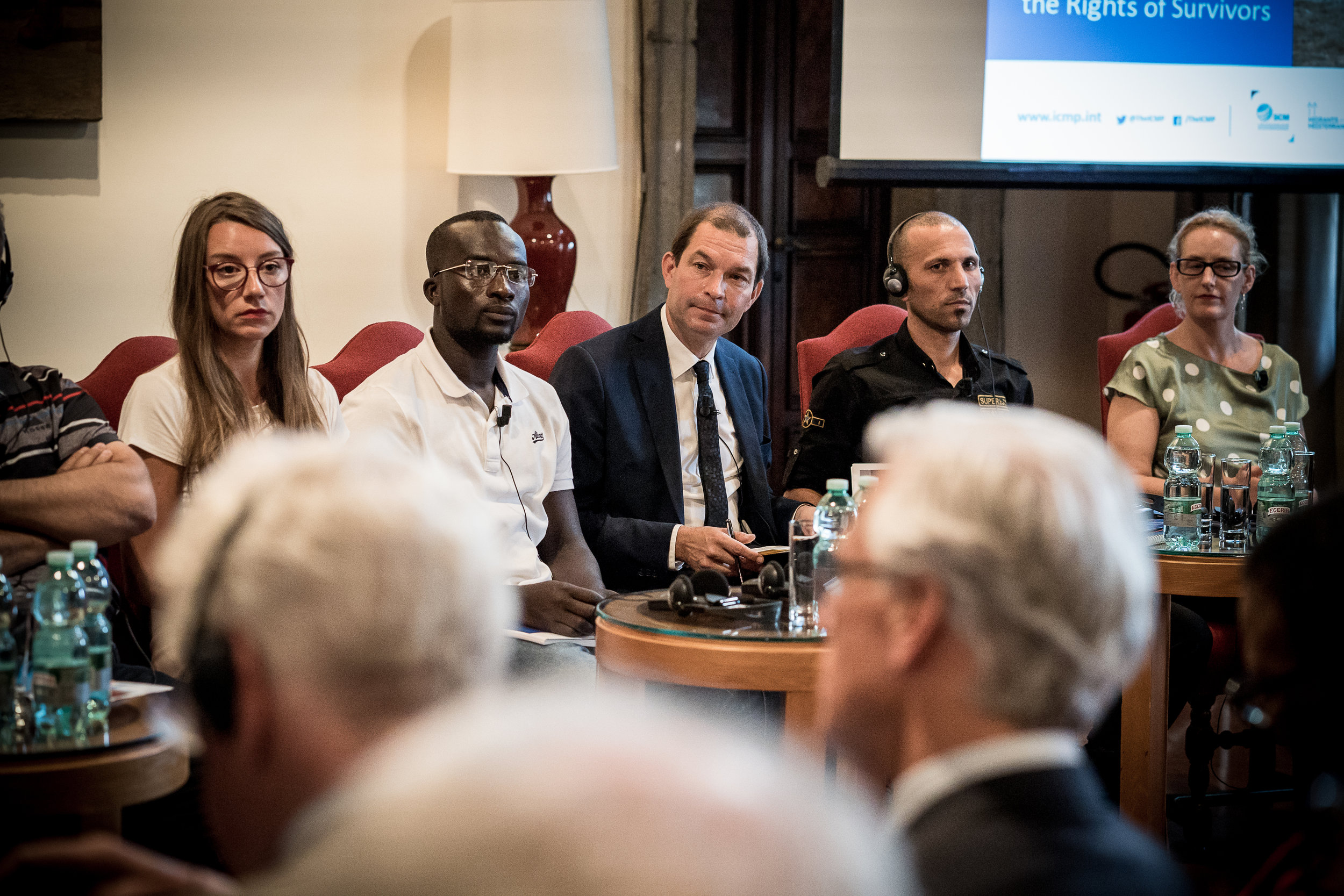
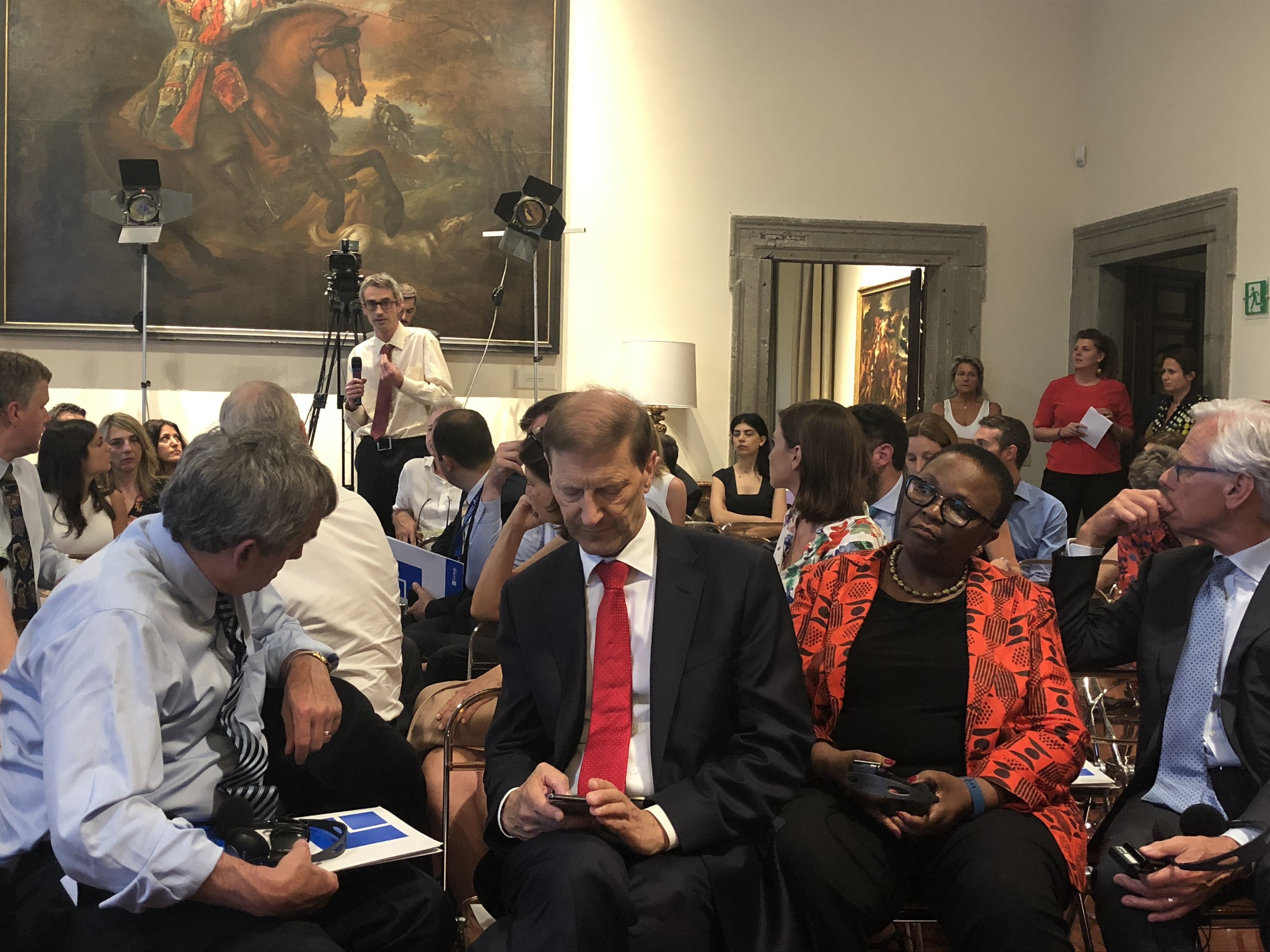
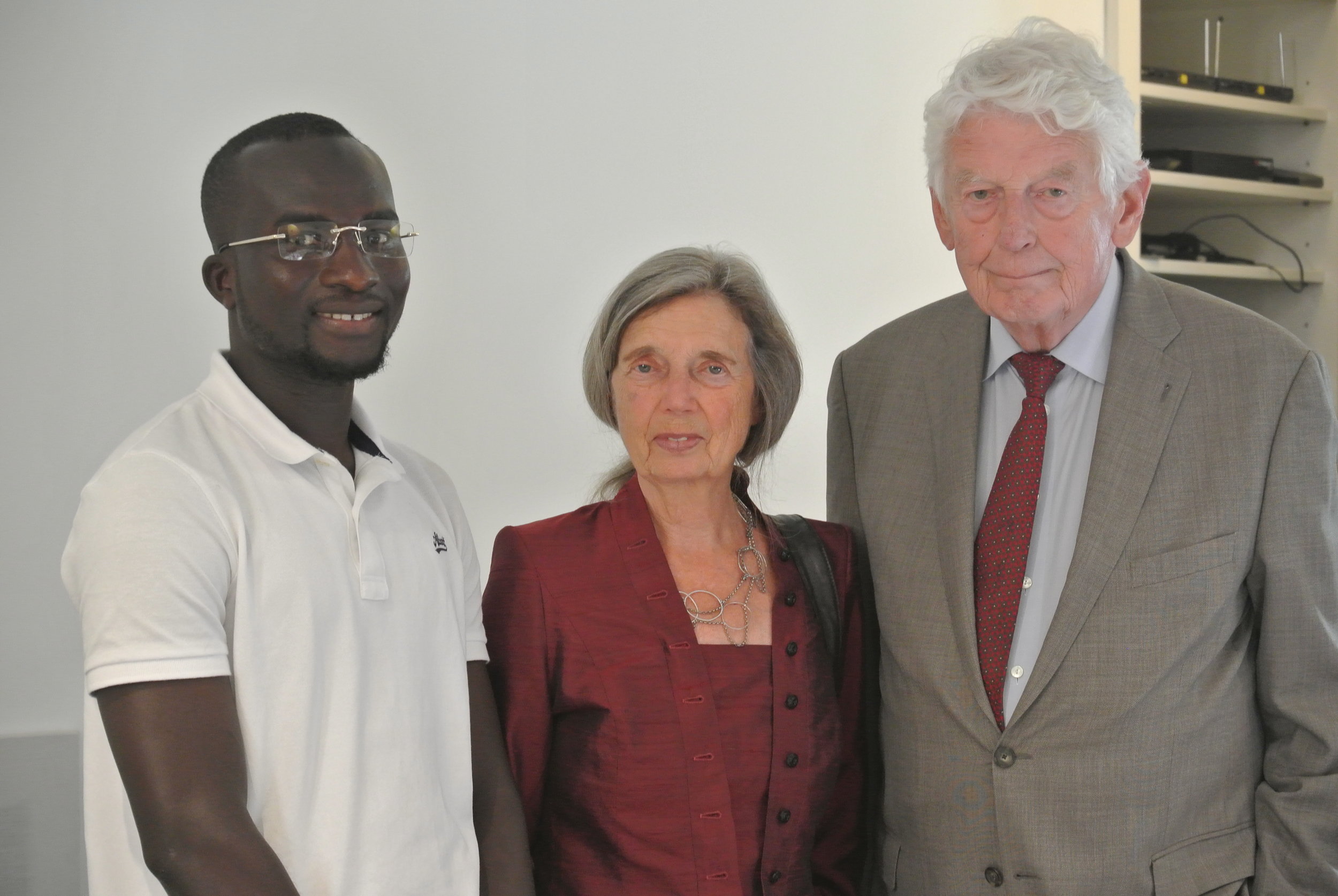
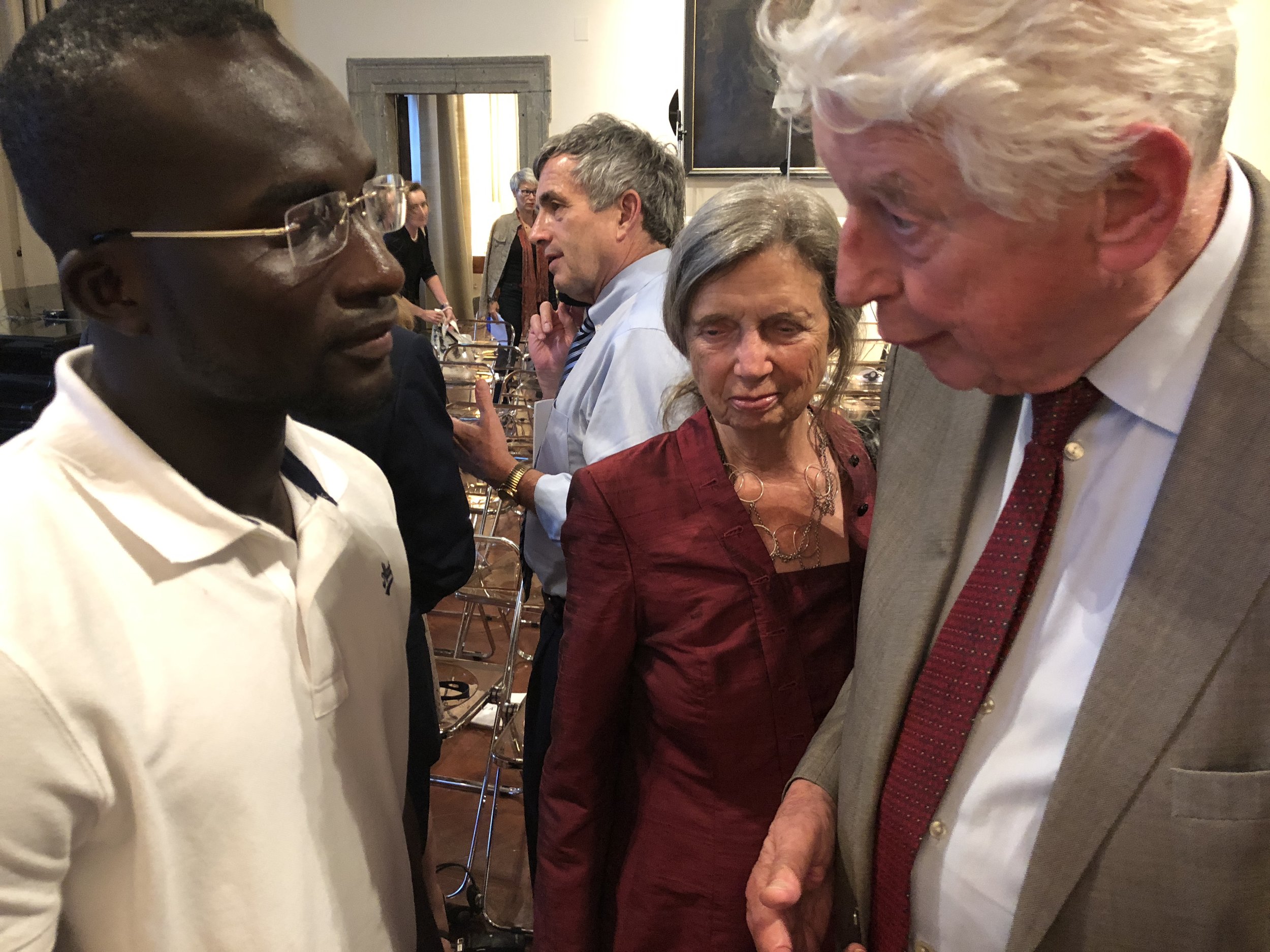
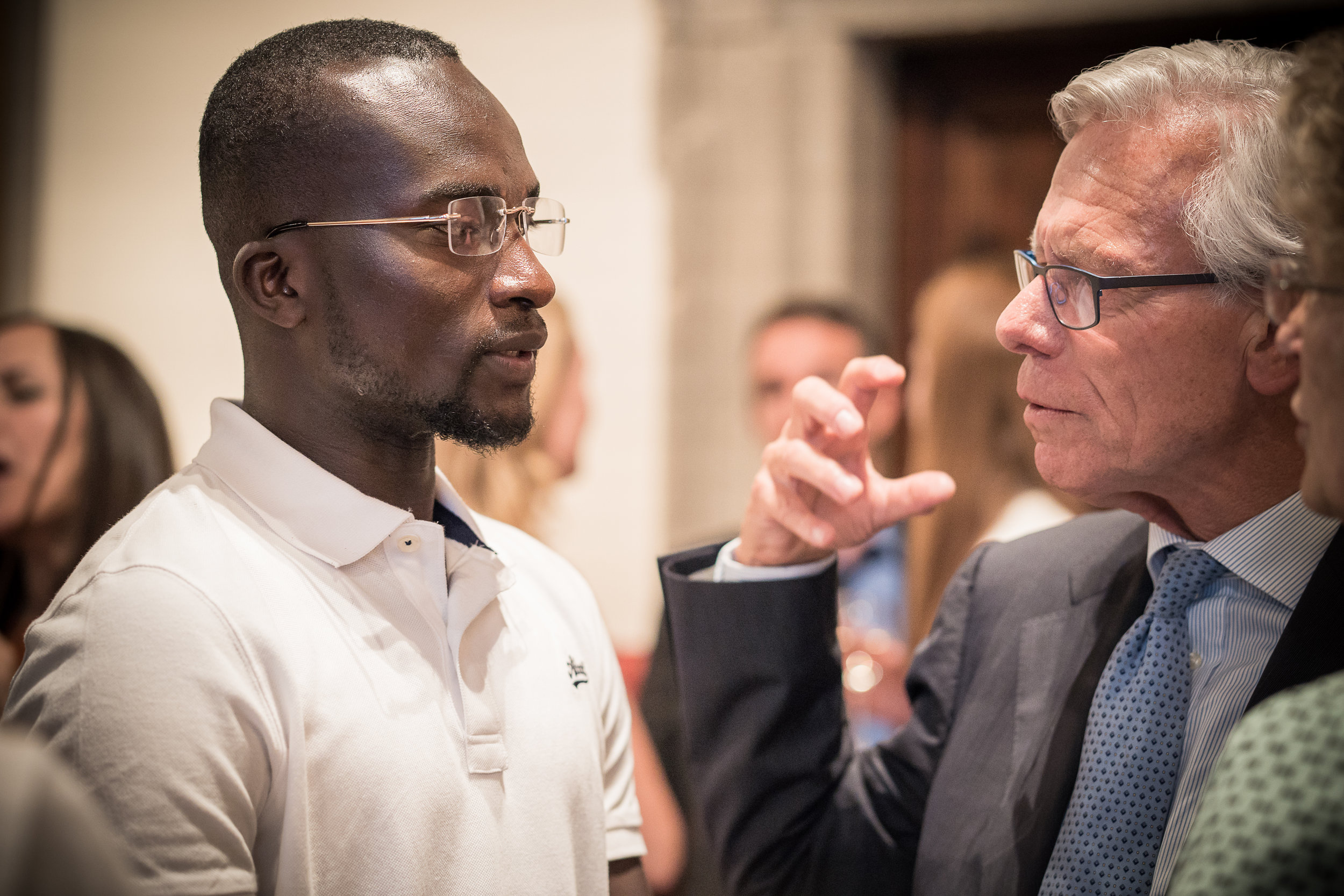
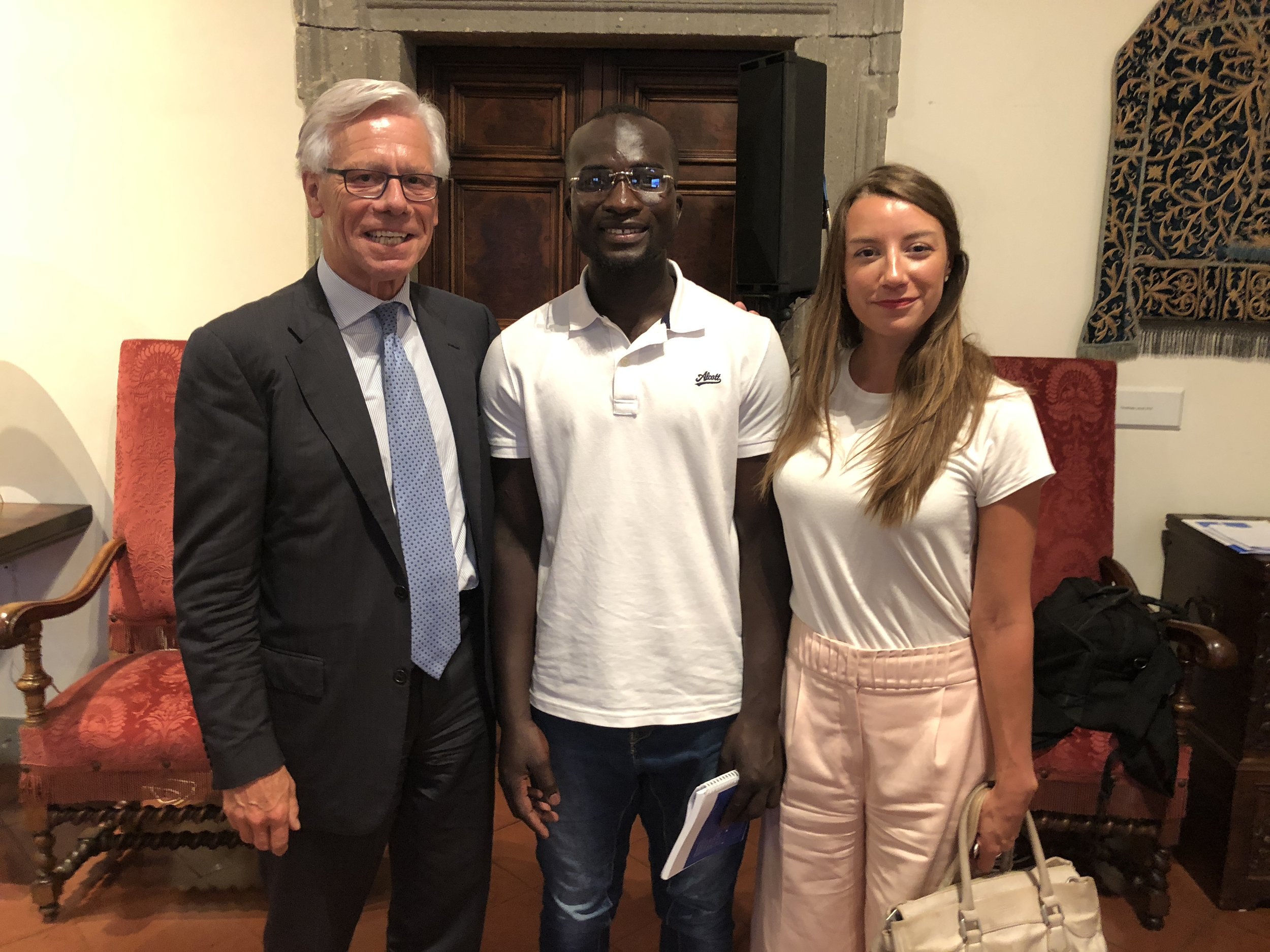
11 June 2018. We are at the Embassy of Switzerland who is hosting our prep session before the conference that evening at their grounds in Rome.
We are joined by the remaining two panelists, Kazem (Syria) whose young son has been missing since 2015, and Meron Estefanos (Eritrea).
On paper, Meron’s resume will read journalist and human rights activist, but she really works as a warrior to save Eritrean refugees from torture, killing, or drowning at sea. She does this through a radio program broadcast from her home. She distributes her phone number on-air to Eritrean listeners, and for this has frequently become the sole lifeline for distress calls at sea. They will call her and she will hear them scream.
Kazem’s son, if he is alive – and he says now he is 99% sure he is dead – is seven years old. His interpreter, speaking from his original Arabic, says he is living in a hell. “It is like the weight will never end,” Kazem said before concluding there was nothing more to say.
Emotions take over Bakary-David as he continues his preparation, occurring to him the significance of everything he has endured. It is sad to talk about, so sometimes he doesn’t, he says. Now he is paused. He is holding his eyes. Walid at his side pulls from his bag a packet of tissues, this time handing one to Bakary-David to dry his eyes.
“I was able to cross the Mediterranean,” Bakary-David says. His friend Mustapha, it is implied, was not.
Why are you here? The ICMP organizers want the panelists to emphasize as they tell their stories to the world leaders, ambassadors and diplomats, human rights workers, and members of the press that will be before them in a few hours.
Meron: To make change.
Bakary-David: To have understanding.
Walid: To represent people with missing persons.
Kazem: To share the suffering of people with missing persons.
So it is about absorbing each other’s pain to survive.
That is how you see someone else, how you make change, and how you understand. The conference went live and when any of the panelists would cry while telling those horror stories again, those that have no end unless does humanity, the audience broke into applause for them.
Bakary-David returned to his housing outside Napoli the next day, unnoticed in the quotidian mix outside the embassy and in Rome’s Termini station where he picked up the train. His voice though, before people with all the influence you can imagine to incite change, had not been.
Bakary-David is an amazing human being.
Read Bakary-David's original Journey Story, recorded in April 2017 >
